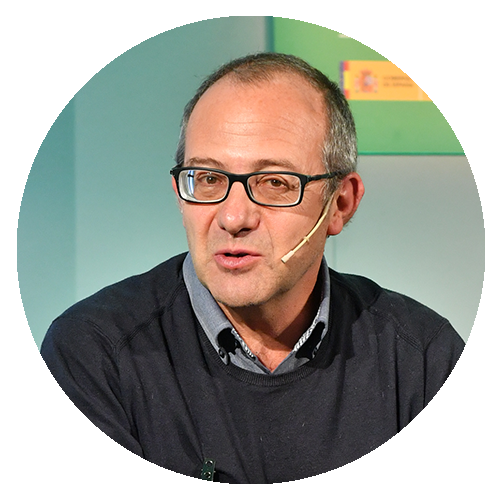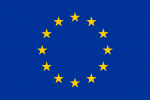
NET ZERO CITIES - MADRID
Interview with Juan Azcárate
Deputy Director for energy and climate change
Madrid City Council
Madrid participates in the NetZeroCities project supporting the European Mission “100 Climate-Neutral and Smart Cities by 2023”.
What are the city’s objectives and challenges in relation to this project?
The Missions are an initiative of the European science and innovation programme Horizon Europe, with the aim of tackling today’s major environmental and social challenges. One of the five missions is the ‘Climate Neutral Smart Cities Mission’, which aims to support, promote and showcase the transformation of one hundred European cities towards climate neutrality to turn them into centres of experimentation and innovation for all the others.
Among these 100 cities is Madrid, which, together with six other Spanish cities, are working together to boost their decarbonisation and climate adaptation actions. Specifically, the Roadmap towards climate neutrality of the city of Madrid has as its initial objective a reduction of greenhouse gas emissions in the city of Madrid by 65% until 2030, compared to 1990 (10 points above the objectives of the European Green Pact) and the ambition for a further reduction, thanks to the support of the Mission initiative.
Are the actions envisaged going to focus on different neighbourhoods of the city?
One of the innovative lines envisaged by the Mission is the territorialisation of climate actions, so as to define environments where climate neutrality can be “experienced”, living, working or studying in a decarbonised environment. The city addresses the Mission at three levels of intervention with specific actions on environments that, although they have a delimited geographical scope, have special characteristics that extend their potential impact to the whole municipality:
- New climate-neutral urban developments. A new way of making the city of the future by integrating climate innovation into urban design and management.
- Generation of a new culture of citizens of the future through intervention in educational centres and zero-emission university campuses, which will attract talent and move towards a society with greater knowledge and commitment to this global challenge. As a first pilot case, work is being carried out in Vallecas, in the area of the South Campus of the Polytechnic University of Madrid.
- A network of facilities and public spaces that act as nodes of climate neutrality for the transformation and regeneration of the consolidated city, promoting change towards a more natural, more cohesive city with a higher quality of life.
As Vallecas, where the UPM South Campus is located, is one of these neighbourhoods, what actions are a priority, has work already begun on some of them, and what stage have they reached?
There are several initiatives in this area that we consider to be of great interest. On the one hand, the intervention project in the area surrounding the UPM South Campus, improving its accesses to promote cycling and pedestrian mobility and the renaturalisation of roads and open spaces, with a budget of 13 million euros, has been selected as a beneficiary in the Low Emission Zone 2022 call of the Ministry of Transport, Mobility and Urban Agenda and work will begin in April 2024. This project will have a significant impact on the connection of the campus with the districts of Puente and Villa de Vallecas. On the other hand, projects such as the Student Residence resulting from the “reinventing Cities” competition of the C40 climate leadership network, or the new urban planning of the Borondo tubes plot will imply a drastic transformation of the area.
Do you think that the AURORA project, coordinated by the UPM from the South Campus, can help to carry out some of these actions? Can you tell us which ones?
Of course, we must not forget that initiatives such as the Mission of Cities require new forms of collaboration and involve different sectors from both the public and private sectors which, together with citizens, contribute to the design, implementation and monitoring of each initiative. This collaboration creates new tools and structures for working together to develop innovative solutions for improving the quality of life in Europe.
The AURORA project can establish the methodology for greater involvement and participation of the community, in this case the university community, in the energy transition required for a decarbonised environment. This new culture of the citizens of the future in terms of energy management and renewable generation is essential and AURORA can provide knowledge and ways of doing things of great relevance.
Do you think that a university community is a good example of how citizens can become aware of the effects that their daily habits (transport, energy consumption, etc.) have on the production of emissions? If so, do you think that the methodology of the AURORA project will help citizens to become more aware and make changes in their habits?
I think that the role of the university community is more than a good example, as it has a very important multiplying capacity for the scaling up of the experience throughout the city. Moreover, we must not forget their prescriptive capacity as key professionals in the future and the talent they can contribute to any experience that is implemented. Awareness-raising and active participation projects such as AURORA are, therefore, very valuable tools for tackling joint problems with a new perspective.
How can the city of Madrid benefit from having the experience of the AURORA project in the South Campus?
Insofar as the South Campus is being configured as a demonstration area for climate action for the city, the AURORA experience has a significant potential for visibility and scaling up. It should not be forgotten that last October we learned that Madrid was one of the first 10 cities to be awarded the EU Mission Label for Climate Neutral and Smart Cities (Mission Label). This label is recognition not to the City Council but to the city for its ambition to propose and develop a Madrid climate agreement that takes into account urban initiatives and actors and aims to help facilitate access to EU, national and regional funding and sources of finance, in particular private investment. The South Campus and the AURORA project are therefore part of this recognition of Madrid on its path towards climate neutrality and can facilitate the way to move faster towards a just green and digital transition, and is setting an example of inclusive policy making at the local level.



